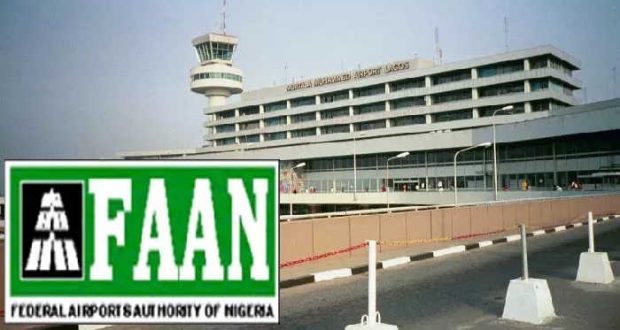The Federal Airports Authority of Nigeria (FAAN) has revealed that it generated N30bn as revenue between January and September 2020.
The Managing Director, FAAN, Captain Rabiu Yadudu, disclosed this on Tuesday when the House of Representatives Committee on Aviation led by its chairman, Nnolim Nnaji, inspected some of the facilities of the agency which included the new terminal building at the Murtala Muhammed International Airport.
Yadudu said of the N30.08bn which is 43.25 per cent of N69.55bn, the nine months target of N26.96bn was the actual collection.
Giving a breakdown of the actual collection, he said N17.61bn was from aeronautical sources, while N5.77bn was non-aeronautical sources.
According to him, “The approved revised revenue estimate for 2020 was N92.74bn less than 10 per cent deduction to NiMET, and service charges made up of N51.98bn from aeronautical sources, N20.69bn from non-aeronautical sources and N21.8bn from debt recovery.”
Capt. Yadudu added, “From January to September 2020, the revenue target on aeronautical sources was N38,988,439,354 and actual generation totalled N17,823,332,992 out of which N17,610,732,478 is actual collection giving a percentage performance of 98.81 per cent on revenue collected over generated.”
On the non-aeronautical sources, the FAAN boss said the target was N15.52bn with the actual generation put at N7.68bn and the actual revenue collected was N5.77bn, giving a percentage performance of 75.21 per cent on revenue collected over.
Similarly, the FAAN boss revealed that the agency remitted N2bn to the Consolidated Revenue Fund during the same period.
READ ALSO: COVID-19 might cause Nigerian Airlines to merge- NCAA
He said, “FAAN does not have an operating surplus. However, between January and September 2020, the Authority has remitted about N2bn to the Consolidated Revenue Fund account.
“The Authority is also mindful of the National Assembly committees on Aviation in ensuring that FAAN is exempted from payment of operating surplus to the Federal Government.
“The exception of FAAN will guarantee that the revenue generated by the airports is transparently reinvested wholly in operating and developing airport facilities in compliance with International Civil Aviation Organisation standards and recommended practices on airport generated revenue,” he added.
Yadudu explained that FAAN was shifting focus from the aeronautical sources of revenue to the non-aeronautical, most especially in the light of the COVID-19 pandemic which he said had significantly affected both passengers and aircraft traffic.
He said, “FAAN is presently operating at only about 30 per cent of its pre-COVID-19 capacity. While some countries are yet to lift travel bans, others are already entering into the second wave of the pandemic, thereby imposing new levels of restrictions.”
Nnaji urged the Federal Airports Authority of Nigeria to focus 70 per cent of its investment on the provision of critical aeronautical infrastructure for the aviation industry to improve the security and safety of the airports.
The lawmakers also asked the agency to begin preparation for the future by saving for the rainy days to avoid a situation like that of the COVID-19 pandemic whereby the agency had challenges with funding and meeting other necessary needs.
The House Committee on Aviation chairman promised that the National Assembly would help to protect the interest of industry in the parliament.
He added that the provisions of the new aviation industry bill before the house when passed, would be friendly to both employees of the agency, the industry and the airline operators, affirming that without the airlines, there would be no FAAN and verse versa.












